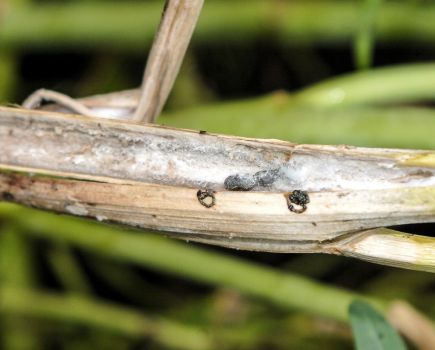As the Government puts forward promises of “trusted advisors” who’ll administer ELMs, CPM talks to farmers in environmental schemes who’ll never trust RPA again.
It’s the way the schemes are administered and that the RPA communicates that are all wrong, and it’s the environment that loses out.
By Tom Allen-Stevens and Melanie Jenkins
Delays, administrative errors and heavy-handed tactics from the Rural Payments Agency (RPA) when dealing with appeals against hefty penalties are putting farmers off applying to Countryside Stewardship and ELMs.
CPM has been approached by several farmers and agents whose clients are £10,000s out of pocket following fines and deductions. Some of them have agreed to tell their story only if their identity is withheld for fear of reprisals and further deductions on continuing contracts with RPA.
One Herts mixed farmer has five Mid Tier CS agreements and told CPM they’ve been battling RPA ever since they applied for the first one that started in 2017. “They lost the application forms, and initially blamed us, until we provided written proof they had been submitted correctly.”
It wasn’t until mid-June that they finally received confirmation for the agreement, that started in Jan. “By then it was too late to sow the AB9 wild bird cover option. An inspector came out in August, right in the middle of harvest. He was really pushy, insisting on discussing what he’d found while at the time I was trying to sort out the grain dryer that was backing up.
“Then we heard nothing for a whole 18 months but noticed payments were missing. Eventually the report came through, which I had to chase, and sure enough they’d deducted the payment for the AB9 and taken off penalties, even though it wasn’t our fault.”
This year there’s been a fresh set of issues. “We’ve been deducted payment for land we’d taken temporarily out of arable into GS4, legume and herb-rich swards – the option is disallowed on land parcels prone to erosion, which is what we’d marked it as five years ago when we completed our Farm Environment Record. Also a remapping exercise has meant three new tumulus sites have suddenly appeared in our fields, making options in them ineligible,” explains the farmer.
“They haven’t said anything for four years about the GS4, and suddenly they just take back all the payments. Yet over that time the soil has really benefited from the legume and herb mix and the field is no longer an erosion risk. The options in the tumulus fields have helped preserve them. It makes no sense as we now have to rip it all up and put it back to arable – we’ve been paying rent on the land and effectively received no income.”
In total, the business has lost around £25-30,000 in claims and penalties. “The Government clearly doesn’t want to do its bit for the environment at all. It simply wants to claw back the money it’s spent. I know the RPA has had restrictive EU rules it has to follow, but farmers seem to be paying the penalty for a scheme the Government has decided it doesn’t like any more.
“But we’ve done nothing intentionally wrong. All we’ve done is try to enhance the environment following the scheme options. Instead, I’ve spent literally weeks of my time trying to piece together from their haphazard way of accounting how and why they’ve deducted all the payments and fines.
“You ring them up and even they can’t work it out, but the RPA isn’t answerable to anyone. Being out of the EU won’t help, because it’s the way the schemes are administered and that the RPA communicates with farmers that are all wrong, and it’s the environment that loses out.”
Another large farming business in the Eastern Counties is £130,000 out of pocket after a bitter battle with the RPA when it imposed claims and penalties multiplied over the entire business.
“It was brutal,” comments the farmer. “I was made to feel like a criminal, and they withheld all subsequent payments from RPA to recover the deductions and penalties. It was very heavy-handed and they’re incredibly difficult to deal with once you start the appeal process.
“I can see that most farmers would just give up, even if they knew they were in the right, because it’s a tortuous process – the RPA must be reaping the rewards of clawing back money due to farmers.”
The time taken for RPA to process inspections, and then subsequent queries from claimants is a common complaint from many farmers who have contacted CPM. Elton Moulds, a rural chartered surveyor at Perkins George Mawer and Co, has experienced numerous instances where the RPA has taken considerable time to deal with client appeals.
One case from 2014 involved a client in ELS and HLS schemes that paid £40,000/yr. After an inspection in the July of that year a letter was issued stating fines and withheld payment of £50,000 in total. “We went through four different appeals and were partially successful each time, with each appeal taking longer,” says Elton.
“Eventually, in 2016 they paid, by which point he was owed £65,000. But rather than getting £40,000/yr subsequently the RPA reduced it to £35,000 – something they still can’t explain to our satisfaction.”
Elton currently has an on-going appeal from September 2019, where £54,000 in fines and withheld payments were administered to his client. “I appealed straight away and got a partial victory in November 2019, reducing the figure to £28,000,” he says. However, he has appealed again and despite chasing the RPA and speaking to senior staff, he has heard nothing back.
“Trying to get hold of the RPA is impossible. You have to send everything to a generic email and it goes into a big black hole. There must be loads of people with small fines who don’t think the time, effort and cost of paying an agent is worth appealing against,” he adds.
Although Emma Powlett, rural management consultant at Powlett and Associates, hasn’t dealt directly with CS cases, she is involved with the RPA through the Rural Development Programme for England (RDPE).
“Since 2016 there have been three rounds of the RDPE; the most recent has seen the worst delays from the RPA in making decisions. One was for a small-scale tourism project,” she explains. “The application was submitted on 30 April 2020 and only got approval on 3 March 2021. It wasn’t even a complex application. These are real businesses they are dealing with who have to make decisions about their future.”
This is just one of many cases where applications have taken considerably longer than they should. “It’s not a customer friendly system and immediately puts a divide between RPA and applicant,” she adds.
The bureaucracy involved may be perceived as a barrier to uptake of the ELMs pilots, she notes. “Prior to the RPA running and managing schemes, skilled staff from the managing bodies would go out and present to farmers and businesses, developing relationships and understanding that led to more trust and stronger projects. Those days seem to have gone.”
After successfully participating in previous environmental schemes, entering CS has been a nightmare for one East Yorkshire mixed arable and livestock farmer. “We worked with an adviser to go into a 10-year agreement – but they left for personal reasons,” explains the farmer.
“In the winter of 2017/18 we had an inspection where a few things were flagged as not being quite right, but we compared his prescription book to ours and they didn’t match – so he was measuring things we didn’t have to do.”
After this the farmer heard nothing from the RPA for 12 months. They then got a letter fining them thousands of pounds – some for things they had cleared up with the inspector and should not have been penalised for.
With the help of an adviser who pushed their case, the farmer launched an appeal, but it took until 2020 to get the money. “My family and I were really stressed by the experience, and we questioned why we even bothered to do CS in the first place. The thing that ticks me off is that there is no one to talk to and they don’t get back to you. If it was any other public body, there would be an inquiry.
“It doesn’t fill you with any confidence going forward.”
As a farm consultant, Rob Wilkinson, at Strutt and Parker, finds the inflexibility of Natural England and the RPA very frustrating. Though several recent inspections have seen quick responses, with good inspectors who are able to clearly explain things, there have been others with a whole host of issues, he says. “Currently there definitely seems a lack of response to enquiries.”
The complexity of the application has proven a real issue. “There are a lot of additional requirements to some of the wider, more exciting environmental options, which are putting farmers off applying, or they feel like options benefit bureaucracy only and not the environment,” he says.
“I know of a case where a farmer’s best land from an environmental perspective is now not included within their agreement, due to a deadline and permission being missed. This is land which was previously managed under ELS/HLS as the same option.
“The rules and deadlines are so numerous that it can be difficult to get full farm and environmental value from an application, especially with such limited flexibility,” says Rob. “Where farmers have a number of options, there are so many times and dates, it’s very difficult to manage. Farmers will then choose the simple options that have some environmental benefit – but it could be more.”
The real issue is the administration, he adds. “The whole system needs completely streamlining, in order to get wider farm uptake.”
Helping members with agri-environment schemes constitutes a large part of Harry Greenfield’s work as senior land use policy adviser at the CLA. “I probably have a bias as the farmers who don’t have problems don’t phone me – I know some farmers in schemes like CS think it’s a really good deal and don’t have any problems.
“I also think the RPA has improved the scheme a lot in recent years – making it more attractive and streamlining the inspection process.”
However, there are still plenty of farmers experiencing issues. “There’s a lack of clarity and where things could be resolved quickly it’s overly complex and long, with the various stages of complaints and appeals,” says Harry.
He’s found the system makes it difficult to know what’s happening in individual cases where issues have arisen, and says the penalty notification letters during an appeal process increase farmers’ anxiety.
There are several occasions where appeals have taken one or two years to resolve. A lot could be done earlier if improvements were made to the system and a case worker was allocated with authority to make decisions, he says.
“There’s a case to be made to the Government about the importance of investing in sustainable farming and environmental land management. We can’t improve our environment without farmers, so environmental schemes must pay well and, just as crucially, be well-administered.”
‘Draconian’ CAP simply didn’t fit, says George Eustice
Defra Secretary of State George Eustice has put the blame for heavy-handed tactics from the RPA when dealing with claims and penalties squarely at the door of the European Union. Going forward, he’s pledged a system where “trusted advisors” will work with farmers on new agreements.
Speaking at Groundswell, he said that 30,000 farmers are currently within Countryside Stewardship or other environmental schemes, and the intention is to bring more farmers on board. In future, farmers will work with their agronomists or other trusted advisors to put together agreements and then to monitor work undertaken. He estimated around 600-1000 professional advisors would need to be accredited, visiting around 80 farms per person twice a year.
When asked by CPM if RPA could be trusted to put such a system in place, bearing in mind current failings, he blamed “the incredibly onerous” EU rules for the “draconian” measures the agency has been taking and for what it was able to say to farmers.
“The Common Agricultural Policy was hideous,” he said. “I spent many years dealing with RPA appeals. Wherever it was possible I used to push for more proportionate outcomes, recognising genuine error, for instance.
“But bear in mind the UK Government was typically fined £100 million each and every year by the EU for not being draconian enough on farmers or claims where we were too soft or weren’t using penalties enough – it was an appalling position to be in.”
For schemes starting in Jan 2021, the Minister pledged RPA will be dealing with farmers in an entirely different way. “Now that the EU auditors are out of the way, we’ve already made clear that we’re going to take a much more pragmatic and sensible approach to penalties, issuing warning letters where it’s appropriate. We’re not obliged any more to simply follow the EU approach.”




